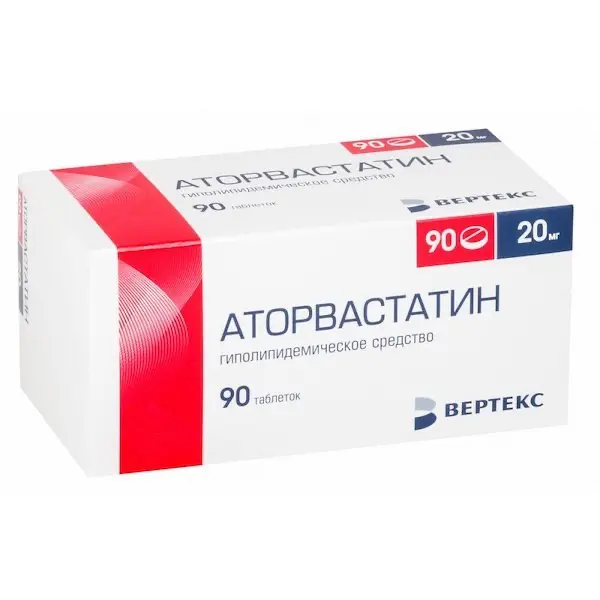Description
Vero-Amlodipine Pharmacodynamics
Dihydropyridine derivative is a “slow” calcium channel blocker (BMCC). It blocks “slow” calcium channels, reduces transmembrane transition of calcium ions into the cell (more in vascular smooth muscle cells than in cardiomyocytes).
It has antianginal and hypotensive effects. Antianginal action is due to dilation of coronary and peripheral arteries and arterioles:
-in angina reduces the severity of myocardial ischemia; by dilating the peripheral arterioles, it reduces total peripheral vascular resistance, reduces the afterload on the heart, thereby reducing myocardial oxygen demand;
-expanding coronary arteries and arterioles in unchanged and ischemic areas of the myocardium, increases the flow of oxygen to the myocardium (especially in vasospastic angina), prevents the development of coronary artery spasm (including that caused by smoking).
In patients with stable angina a single daily dose of amlodipine increases exercise tolerance, delays the development of angina attacks and “coronary” ST-segment depression, reduces the frequency of angina attacks and consumption of nitroglycerin and other nitrates.
It has a long-term dose-dependent hypotensive effect. The hypotensive effect is due to the direct vasodilator effect on the vascular smooth muscles. In arterial hypertension, a single dose of amlodipine provides clinically significant reduction of blood pressure (BP) for 24 hours (in patient “lying” and “standing” position).
Orthostatic hypotension with amlodipine is rare. Amlodipine does not cause decreased tolerance to exercise, decreased left ventricular ejection fraction. It reduces the degree of left ventricular myocardial hypertrophy. It does not affect myocardial contractility and conduction, does not cause reflex increase in heart rate (HR), inhibits platelet aggregation, increases glomerular filtration rate, has a weak natriuretic effect. In diabetic nephropathy it does not increase the severity of microalbuminuria. It does not have any adverse effect on metabolism and blood plasma lipid concentration and can be used for therapy of patients with bronchial asthma, diabetes and gout.
In patients with diseases of the cardiovascular system (including coronary atherosclerosis with lesions of one vessel and up to stenosis of 3 or more arteries, atherosclerosis of the carotid arteries), who had myocardial infarction, percutaneous transluminal coronary angioplasty (PTCA) or in patients with angina pectoris, the use of amlodipine prevents the development of carotid intima-media thickening, reduces mortality from myocardial infarction, stroke, PTCA, aortocoronary bypass; leads to fewer hospitalizations for unstable angina and progression of chronic heart failure (CHF); reduces the frequency of interventions to restore coronary blood flow.
Does not increase the rate of mortality or complications and fatal outcomes in patients with CHF (NYHA functional class III-IV) against the background of digoxin, diuretics and angiotensin-converting enzyme (ACE) inhibitors therapy. In patients with CHF (functional class III-IV according to NYHA classification) of non-ischemic etiology, when using amlodipine, there is a possibility of pulmonary edema.
Significant BP reduction is observed after 6-10 h, the duration of effect is 24 h.
Indications
-Artial hypertension (both in monotherapy and in combination with other hypotensive agents)
-Stable angina pectoris and vasospastic angina pectoris (Prinzmetal’s angina or variant angina pectoris), both in monotherapy and in combination with other antianginal agents
Contraindications
-Hypersensitivity to amlodipine and other dihydropyridine derivatives and excipients that comprise the drug
-Severe arterial hypotension (systolic BP less than 90 mmHg).
-Left ventricular outflow tract obstruction (including severe aortic stenosis)
-Shock (including cardiogenic)
-Hemodynamically unstable heart failure after myocardial infarction.
-Age under 18 years of age (efficacy and safety not established)
Caution
Use with caution in patients with hepatic insufficiency, CHF of non-ischemic etiology (functional class III-IV according to NYHA classification), unstable angina pectoris, aortic stenosis, mitral stenosis, hypertrophic obstructive cardiomyopathy, acute myocardial infarction (and during 1 month after it), sinus node weakness syndrome (significant tachycardia, bradycardia), arterial hypotension, when concomitant use with inhibitors or inducers of CYP3A4 isoenzyme.
Application during pregnancy and lactation
The safety of using amlodipine during pregnancy and breastfeeding has not been established, therefore, the use of the drug Vero-amlodipine during pregnancy and breastfeeding is possible only if the benefit to the mother exceeds the risk to the fetus and the newborn.
Experience of use shows that amlodipine is excreted in women’s breast milk. The mean milk/plasma ratio for amlodipine concentration was 0.85 in 31 lactating women who had pregnancy-related arterial hypertension and received amlodipine at an initial dosage of 5 mg daily. The dosage of the drug was adjusted as needed (the mean daily dose of amlodipine and the weight-dependent dose were 6 mg and 98.7 mcg/kg body weight, respectively). The estimated daily dose of amlodipine received by the infant via breast milk is 4.17 mcg/kg body weight.
No effect of amlodipine on fertility was found in a study in rats.
Dosage and administration
- Orally, once daily, with the required amount of water (100 ml).
- In arterial hypertension, angina pectoris, the initial dose is usually 5 mg, depending on the therapeutic response, it can be increased to a maximum daily dose of 10 mg.
- Use in elderly patients
- Amlodipine is recommended for use in an average therapeutic dose, no dose adjustment is required.
- Administration in patients with hepatic impairment
- Despite the fact that the T1/2 of amlodipine, like all PBMCs, is increased in patients with hepatic impairment, no dose adjustment is usually required (see section “Special Precautions”).
- Use in patients with impaired renal function
- It is recommended to use amlodipine in usual doses, however, a possible slight increase in T1/2 should be taken into account.
- No dose adjustment is required for concomitant use with thiazide diuretics, beta-adrenoblockers and angiotensin-converting enzyme inhibitors.





